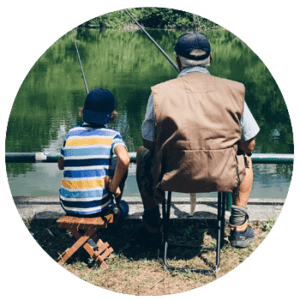
Estate Planning
We’ve all heard the saying, “you can’t take it with you when you die” and there isn’t really anything we can do about that, but we can help you create a plan for what happens when you die. It is called Estate Planning and it is not just for the rich and wealthy. We believe that everyone can benefit from having the basic estate planning documents prepared. If you own property, have any money, children or even pets, then you at least need a Last Will and Testament.
Our services are tailored to your needs, we won’t sell you something you don’t need. Our most common package includes:
- A Last Will and Testament, which describes how you wish your property to be distributed upon your death
- A Financial Power of Attorney document that grants the authority to a trusted person to handle your financial affairs, should you become unable to do so
- A Medical Power of Attorney document that outlines the type of medical treatment you would like under certain circumstances and appoints a trusted person to make medical decisions on your behalf should you become unable to do so
- And lastly, a Right to Die Declaration that puts your wishes in writing about whether you would want certain life sustaining procedures, even if you should be in a terminal condition or in a state of permanent unconsciousness.
Most people create these plans because they are worried about what will happen to their things or because they don’t want to burden their loved ones when they die. We say, plan now and avoid pain and worry later!
Estate Planning Resources

We create plans that protect your loved ones and give you control over the distribution of your assets.
What does Estate Planning mean?
The word “Estate” refers to a person’s belongings – his or her businesses, money, land, homes, cars – all of their possessions. Estate planning is just making arrangements for loved ones after you die and determining how your estate will be distributed. Our estate planning services include a Last Will and Testament or a will; a Medical Power of Attorney; a Financial Power of Attorney and a Right to Die Declaration.
What is a will?
A will or “last will and testament” is a legal document that describes a person’s wishes about what should happen to their property after he or she dies. It can also appoint a guardian for your children or pets.
What are the different types of wills or testaments?
An olographic will must be written, dated, and signed in the handwriting of the person making the will, also known as the testator. The date may appear anywhere in the will, the testator must sign the testament at the end of the testament.
A notarial will must be in writing and signed before a notary and two competent witnesses. The person making the will, also known as the testator, has to declare that the will is his or her last testament and then sign his or her name at the end of the testament and on every page of the will. Louisiana law also requires a particular phrase to be included at the end of the will indicating the witnesses and notary watched the testator sign his name to the will. This is the type of will OPL will create for you.
Do I need a will?
If you care about what happens to your belongings after you die, then yes, you need a will. It does not matter how little or how much you have.
What is a Financial Power of Attorney?
A financial power of attorney grants a trusted person (will be known as the agent) the authority to act on your behalf in all financial matters in the event you become unable to act. The agent can legally manage your finances and property, including conducting financial transactions on your behalf. A Financial Power of Attorney can specifically limit an agent’s authority. The appointed agent is legally required to act in a manner that is consistent with your wishes.
What is a Medical Power of Attorney?
A medical power of attorney grants a trusted person the authority to act on your behalf in all medical matters in the event you become unable to act.
What is a Right to Die Declaration?
It is signed statement advising your loved ones of your wishes in the event you find yourself in a terminal or permanently unconscious state. It gives you the opportunity to state that you do not want life-sustaining procedures to prolong your death and that you would like to die naturally with only the medical care necessary to provide comfort.
ADDITIONAL RESOURCES
Get in Touch with Gaudin Law Group
Please send us a detailed message. We’ll be in touch shortly.
